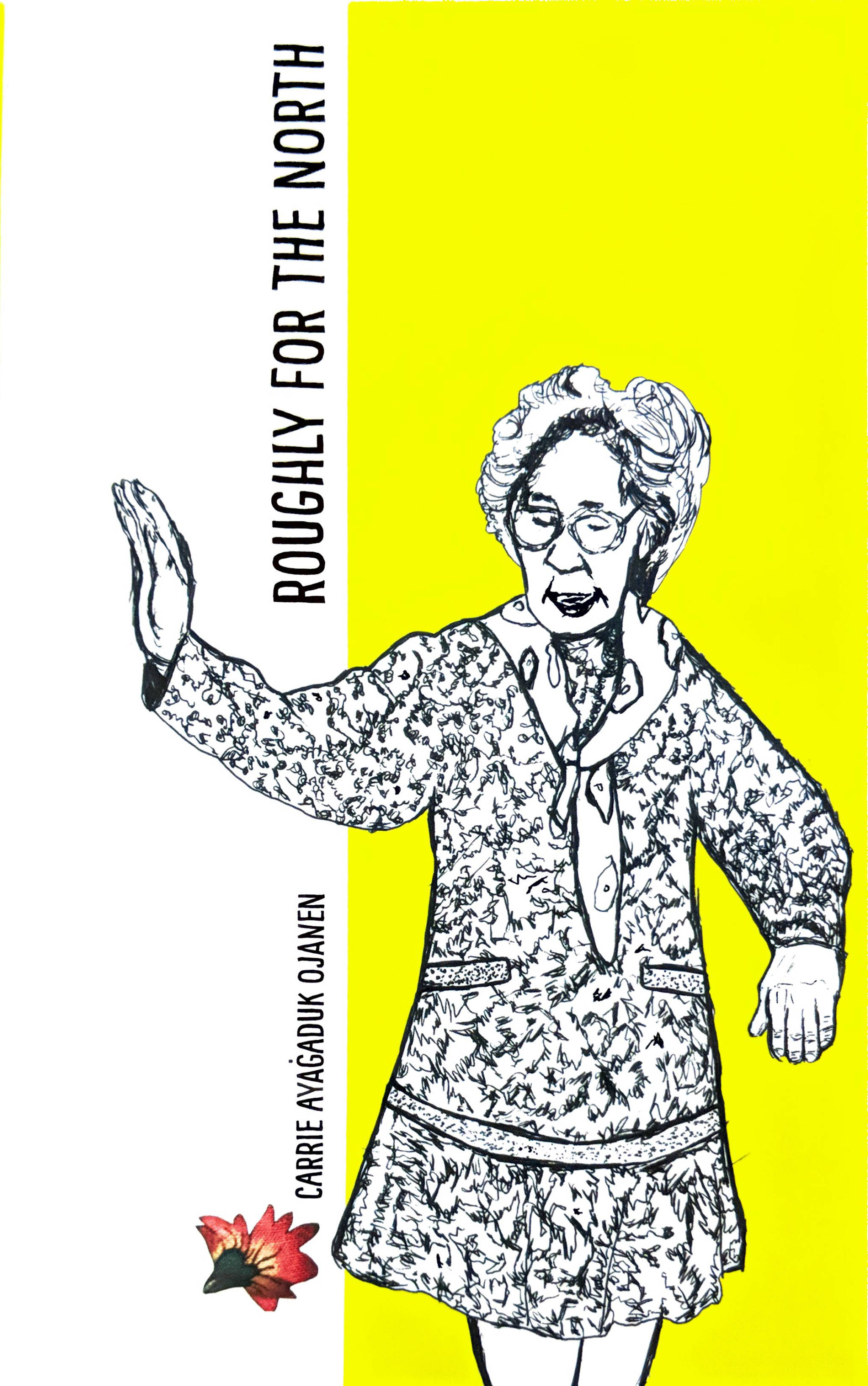Good poetry elicits an emotional response and “Roughly For the North” certainly does that.
It would be nearly impossible to read Carrie Ayagaduk Ojanen’s debut collection of poetry published by University of Alaska Press and not feel something.
However, most of the emotions provoked over the course of “Roughly For the North” aren’t positive.
“Roughly For the North” scratches the same itch while taking a psychic toll as a favorite weep-y movie or particularly devastating breakup album.
That’s because Ojanen’s chosen subject matter tends to be eras, places and people lost to the ceaseless expanse of time or colonial imposition. Throughout the 67-page collection, Ojanen creates pictures loaded with sensory details that make her portraits of wistfulness, grief, longing and searching evoke real sensations.
The observed orange smearing from berry picking, the black blood sprays of eviscerated fish and the sloping posture of aged relatives lend an almost oppressive weight of reality to poems that sometimes straddle the line between the waking and dreaming worlds.
The works underscore the reality that the events of the past are both immutable and removed, but equally irresistable to consideration. It is a profound sentiment but also a tough one.
All of the poetry’s raw emotion is presented through the prism of Ojanen’s cultural identity.
She is an Inupiat writer and member of Ugiuvamiut tribe, and the displacement of her grandparents from Ugiuvak to Nome inspire her writing, according to book’s about the author entry.
There are poems that present the anguish her elders felt to be separated from not only their home, but their customs. They capture the cultural changes that were endured, the scraps of identity that were salvaged in the transition and brief moments of reclamation.
The focus on tradition means that some poems in “Roughly for the North” may be difficult for folks with an aversion to depictions of animal slaughter. While it’s not done cruelly by any of the poem’s characters or speakers, it is described with the keen eye for detail that is found elsewhere in the collection.
As “Roughly For the North” progresses, a strong parallel begins to emerge between Ojanen’s transplanted grandparents’ disconnect from their ancestral home and the loss of connection between generations caused by inevitable demise.
Ojanen’s ancestors are not the entirety of the collection, which despite unifying sentiments, is fairly varied.
Topics include a meditations on the soul, a short scene of a child watching his father trim a tree and recollections of a passing flock of geese among many others.
The form of the poems can also very greatly with fluctuations in length, shape and capitalization. Rhyme even occasionally creeps into the lyrical free verse.
This makes the bite-sized book particularly easy to devour on a cold, dark evening.
• Contact arts and culture reporter Ben Hohenstatt at (907)523-2243 or bhohenstatt@juneauempire.com.
• Contact arts and culture reporter Ben Hohenstatt at (907)523-2243 or bhohenstatt@juneauempire.com.

